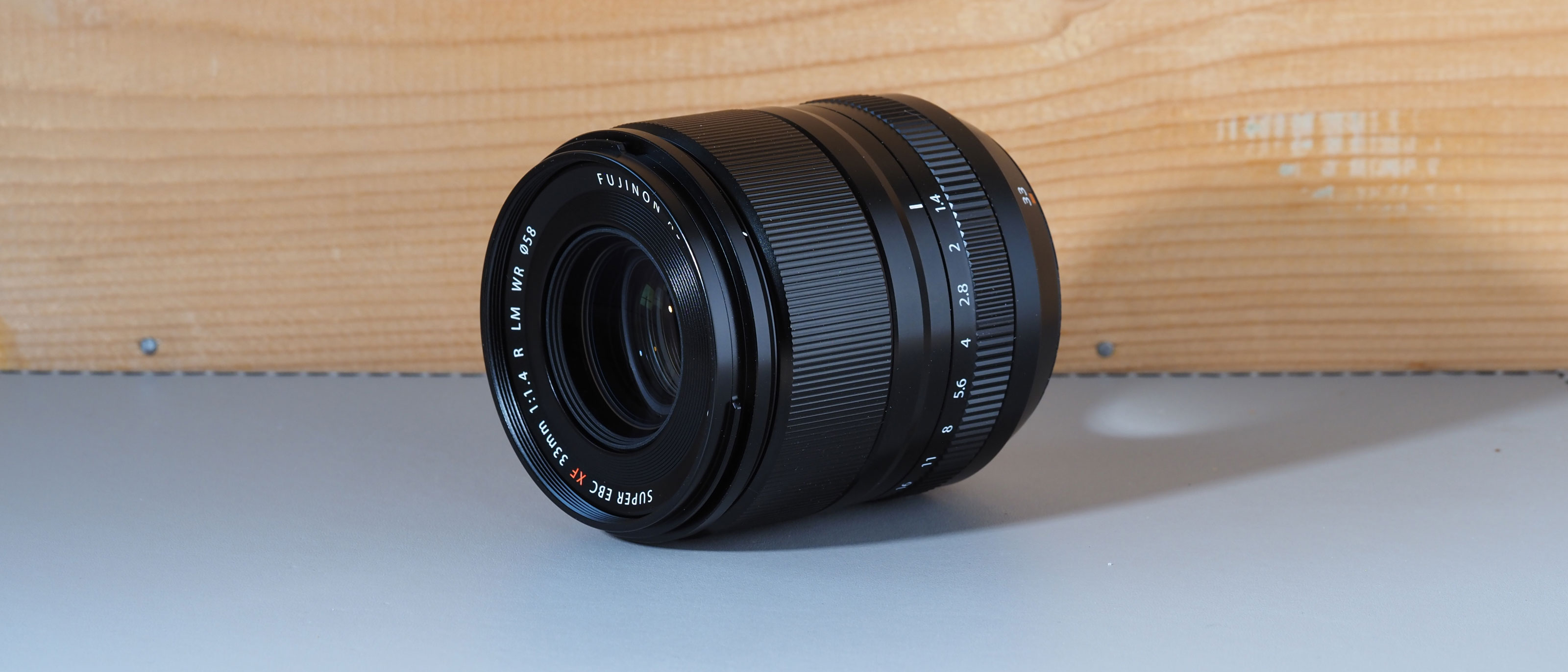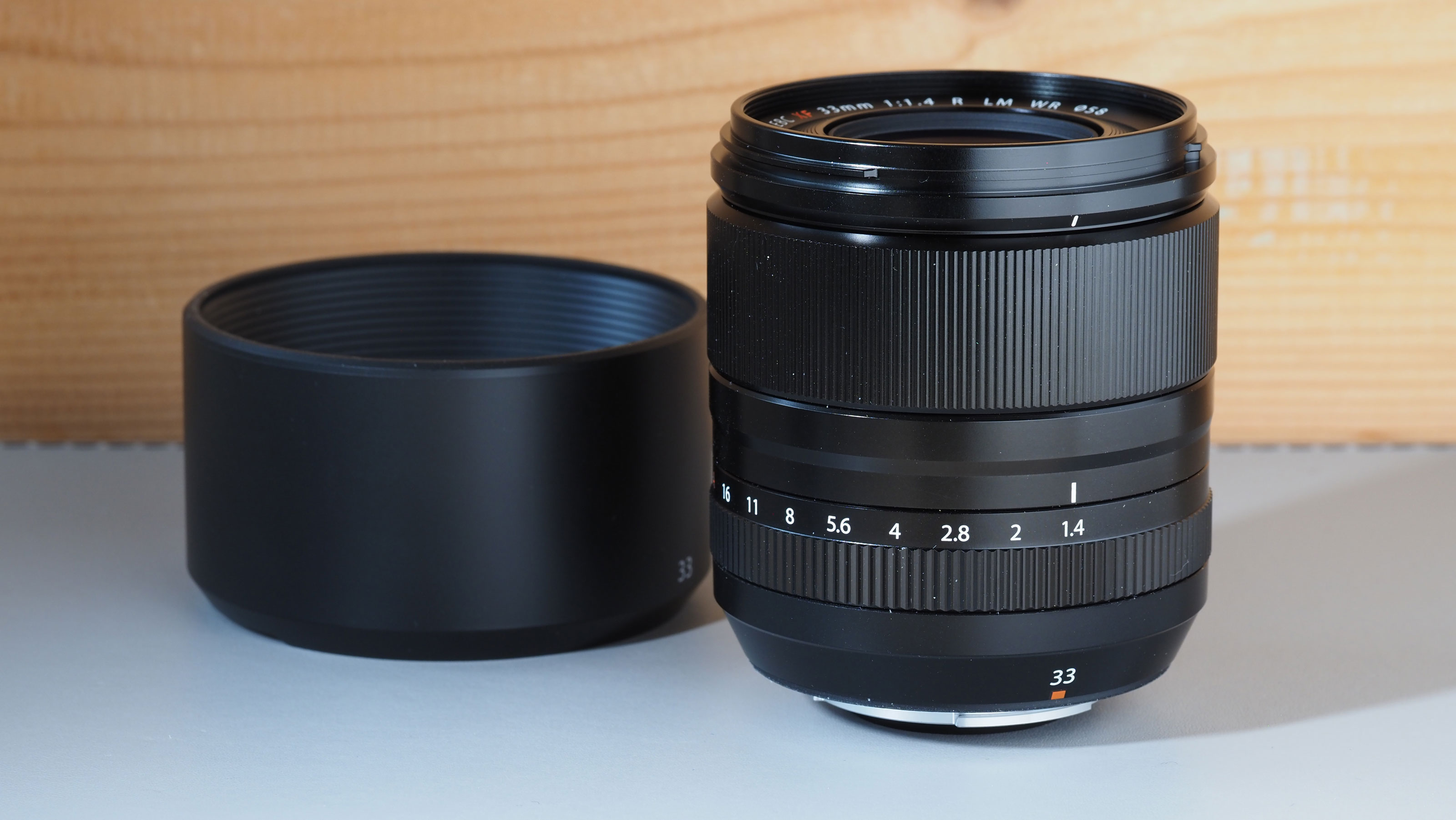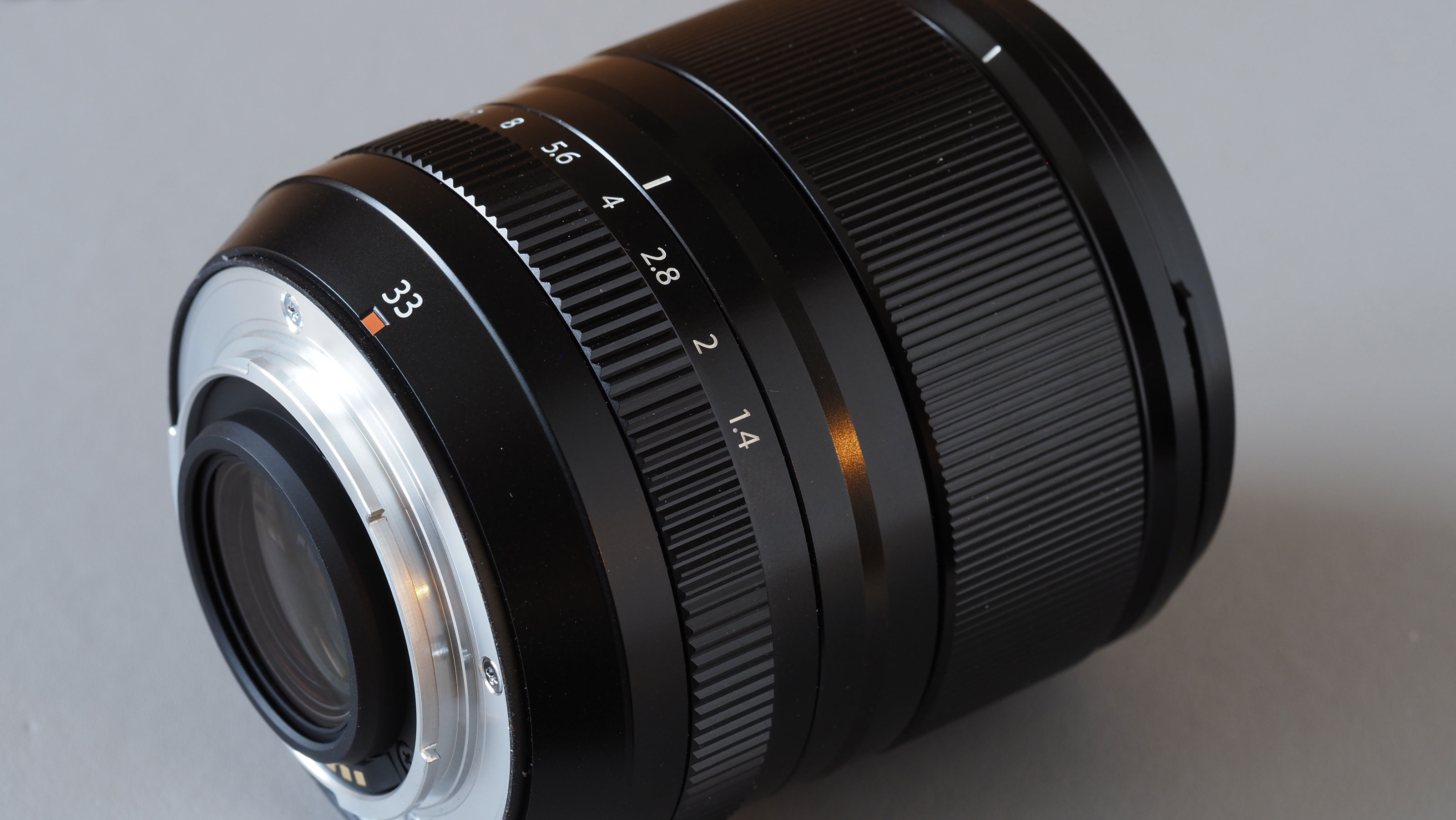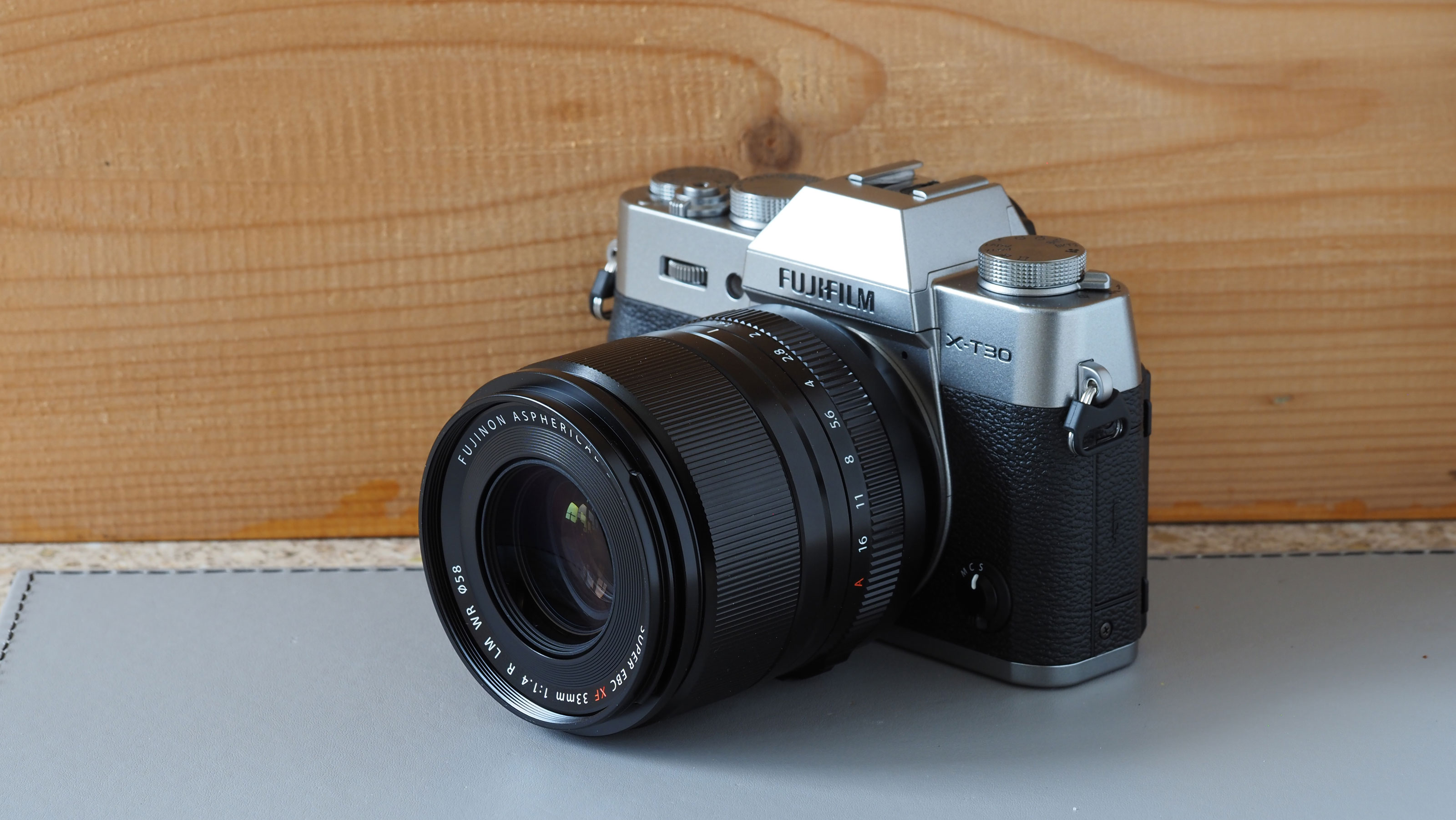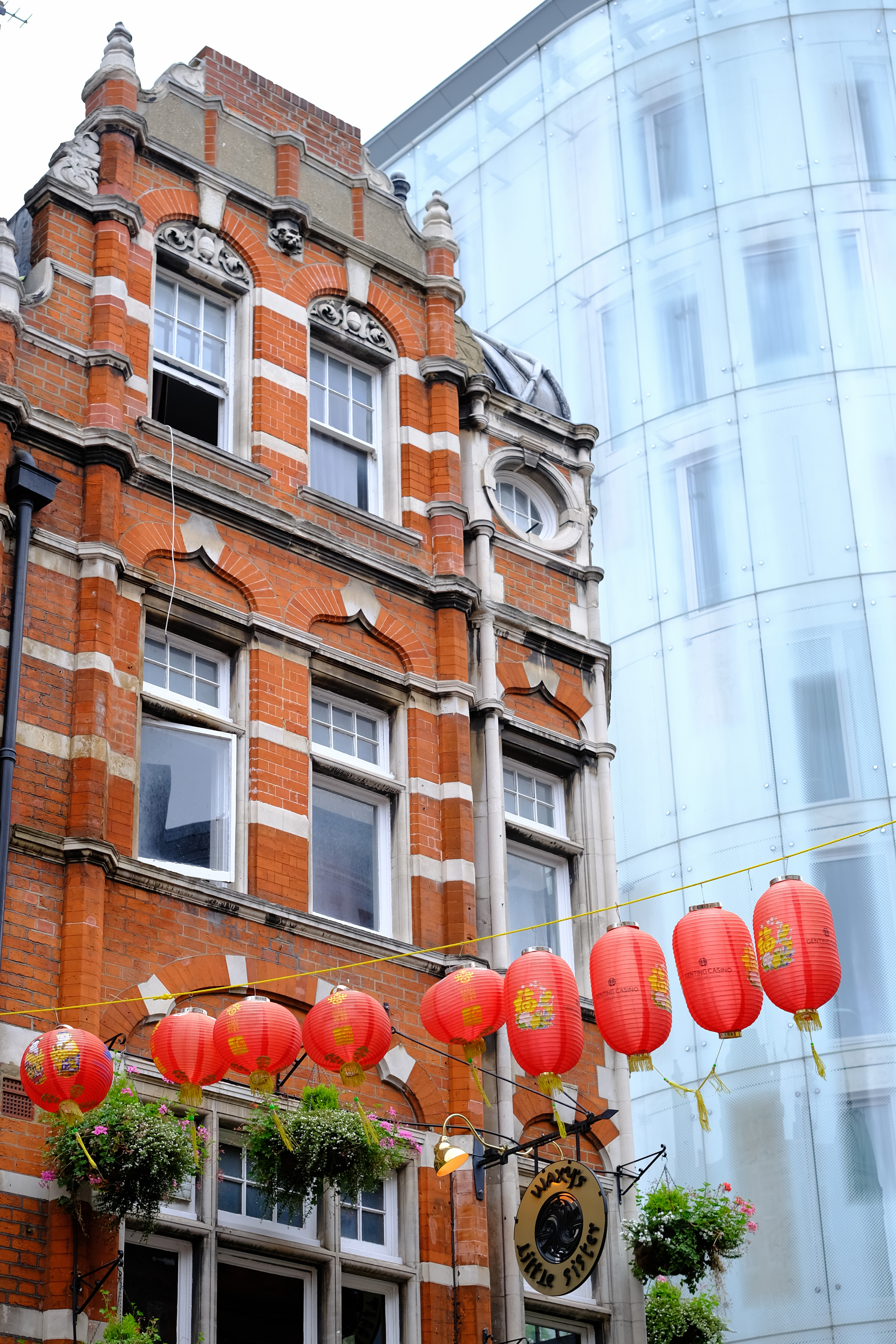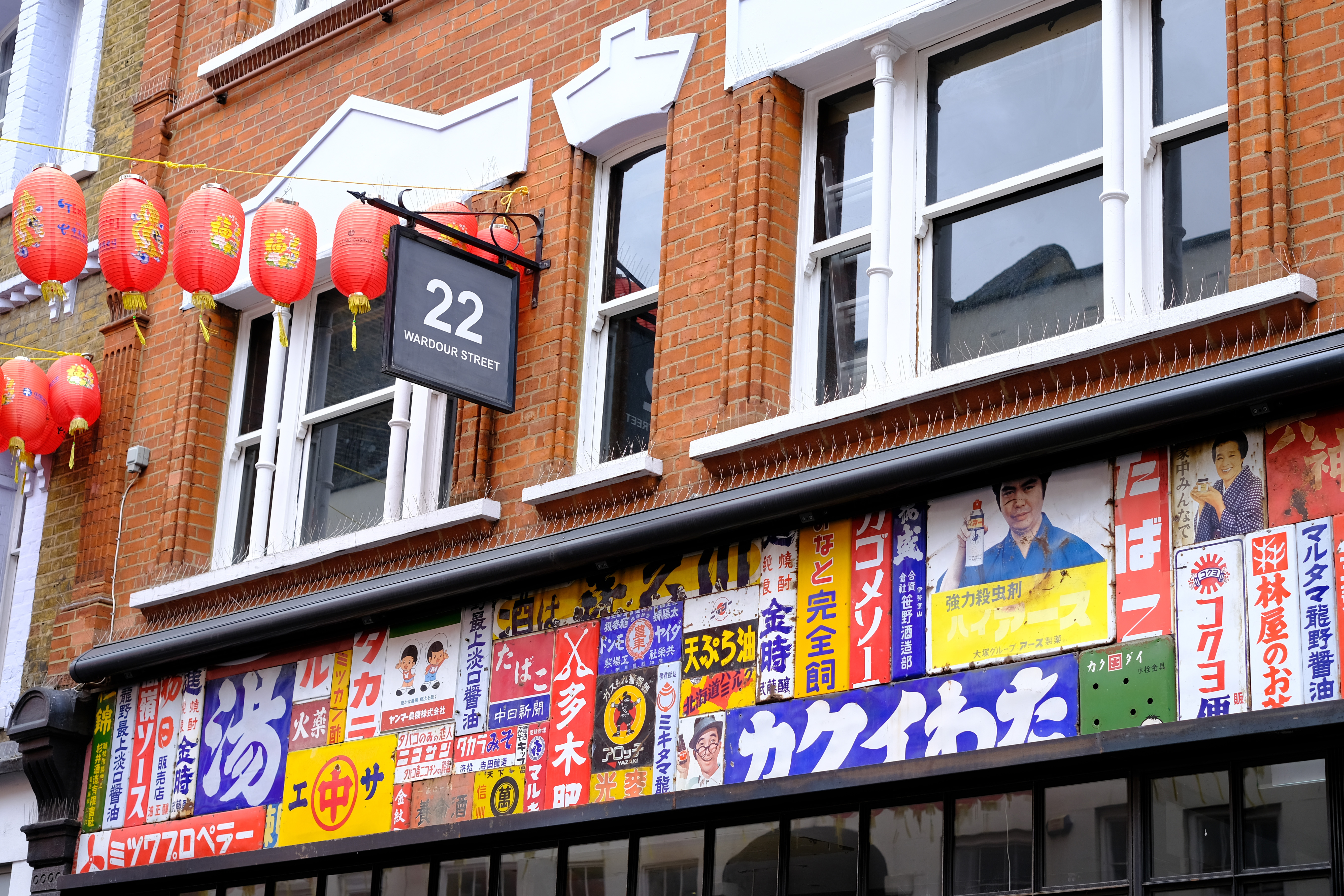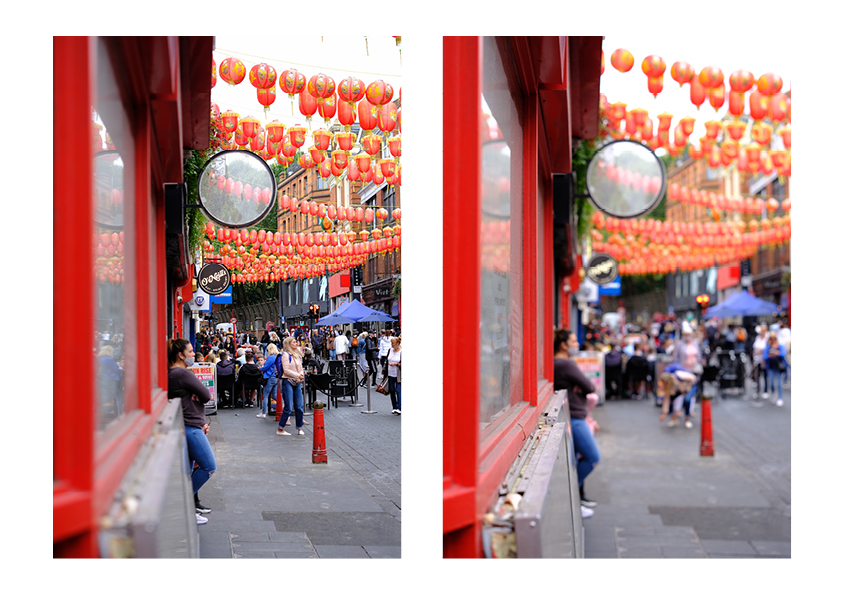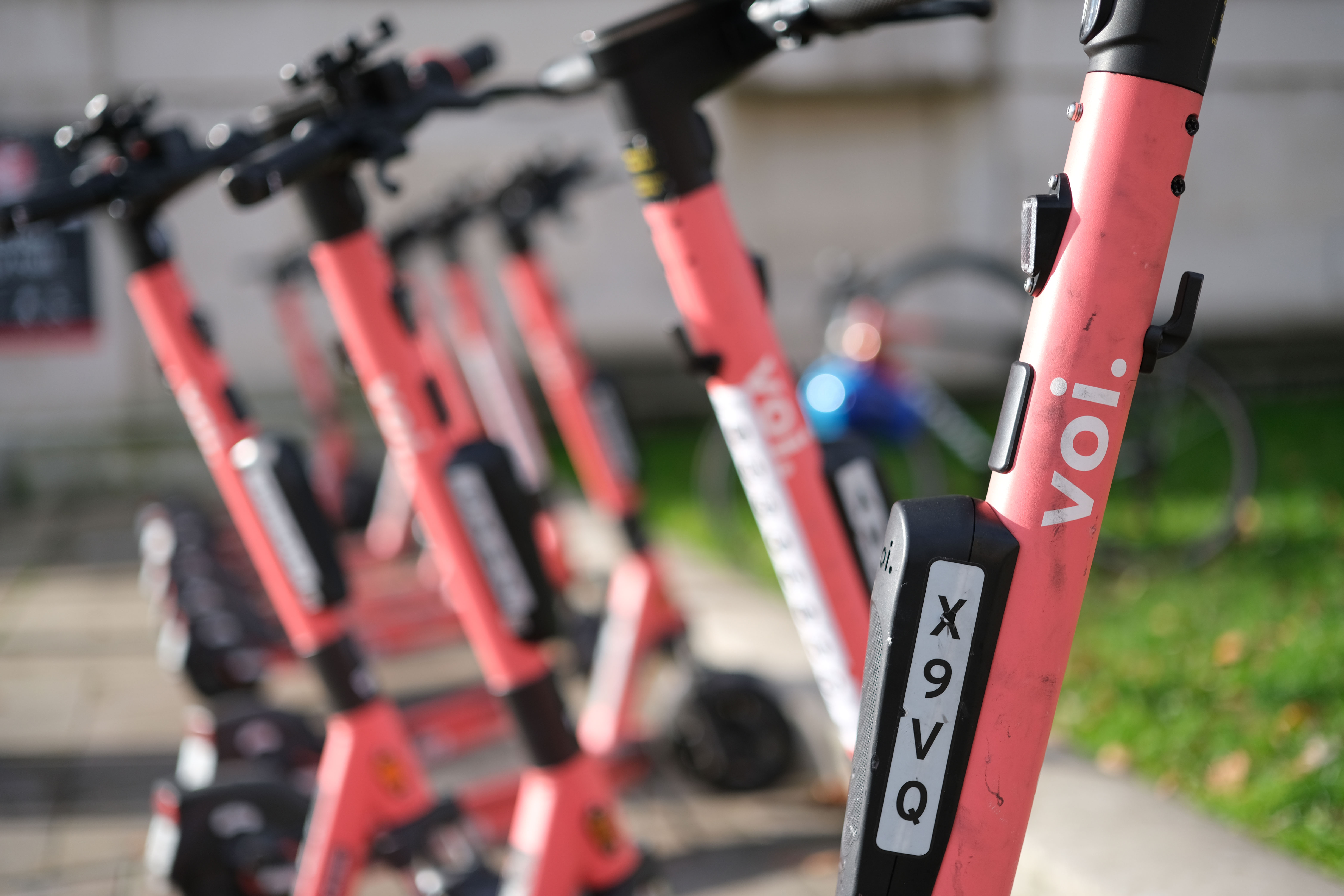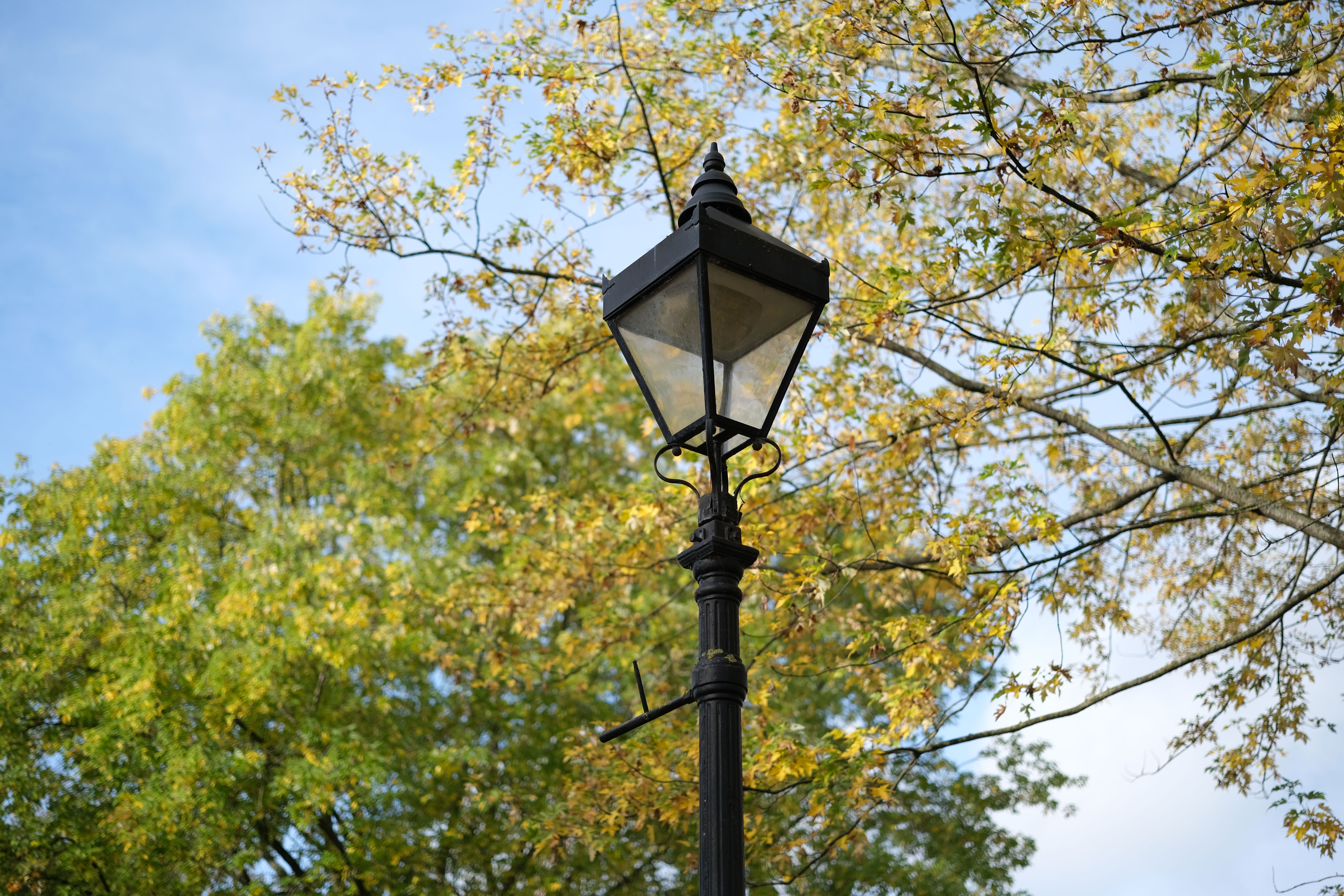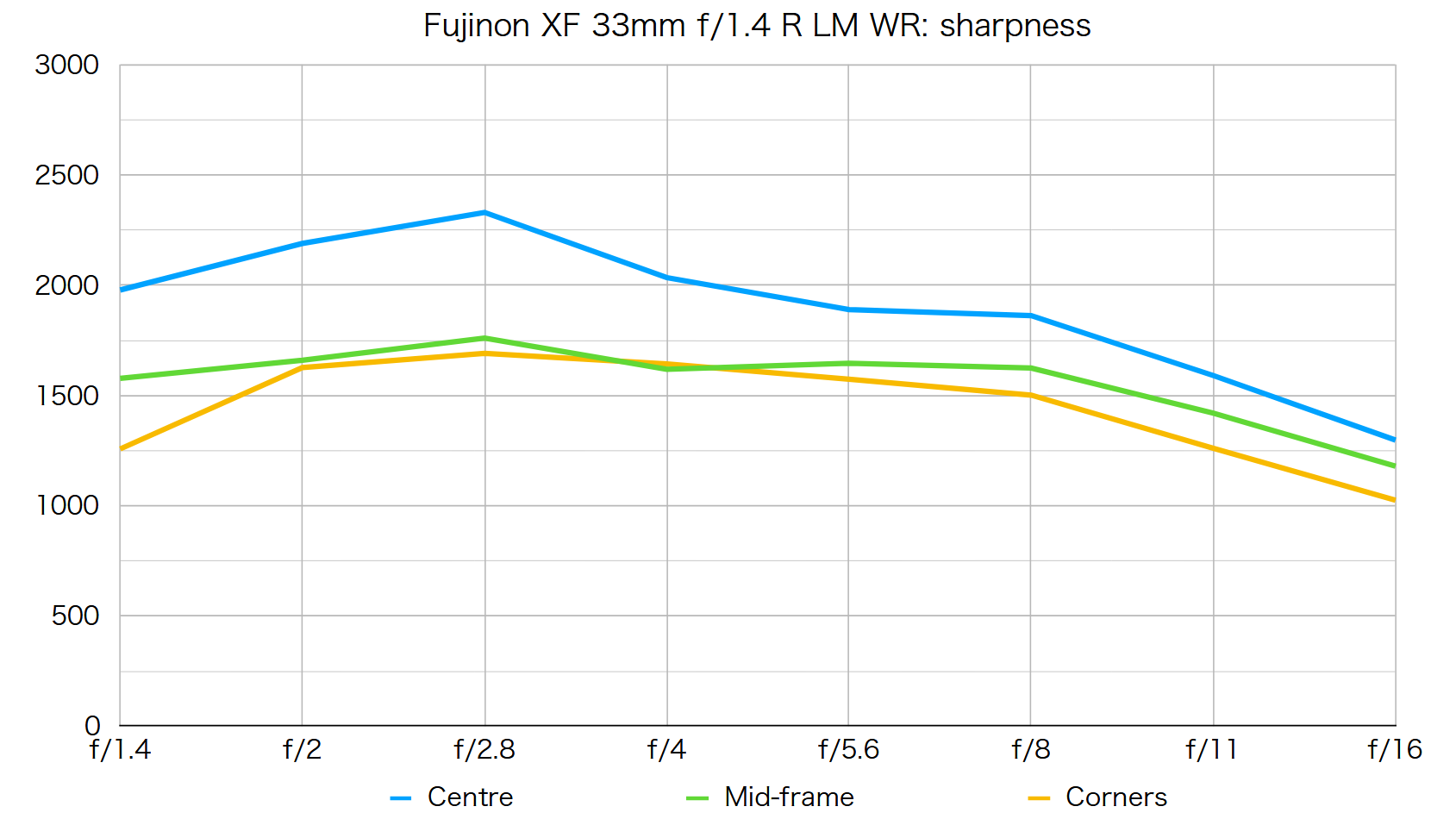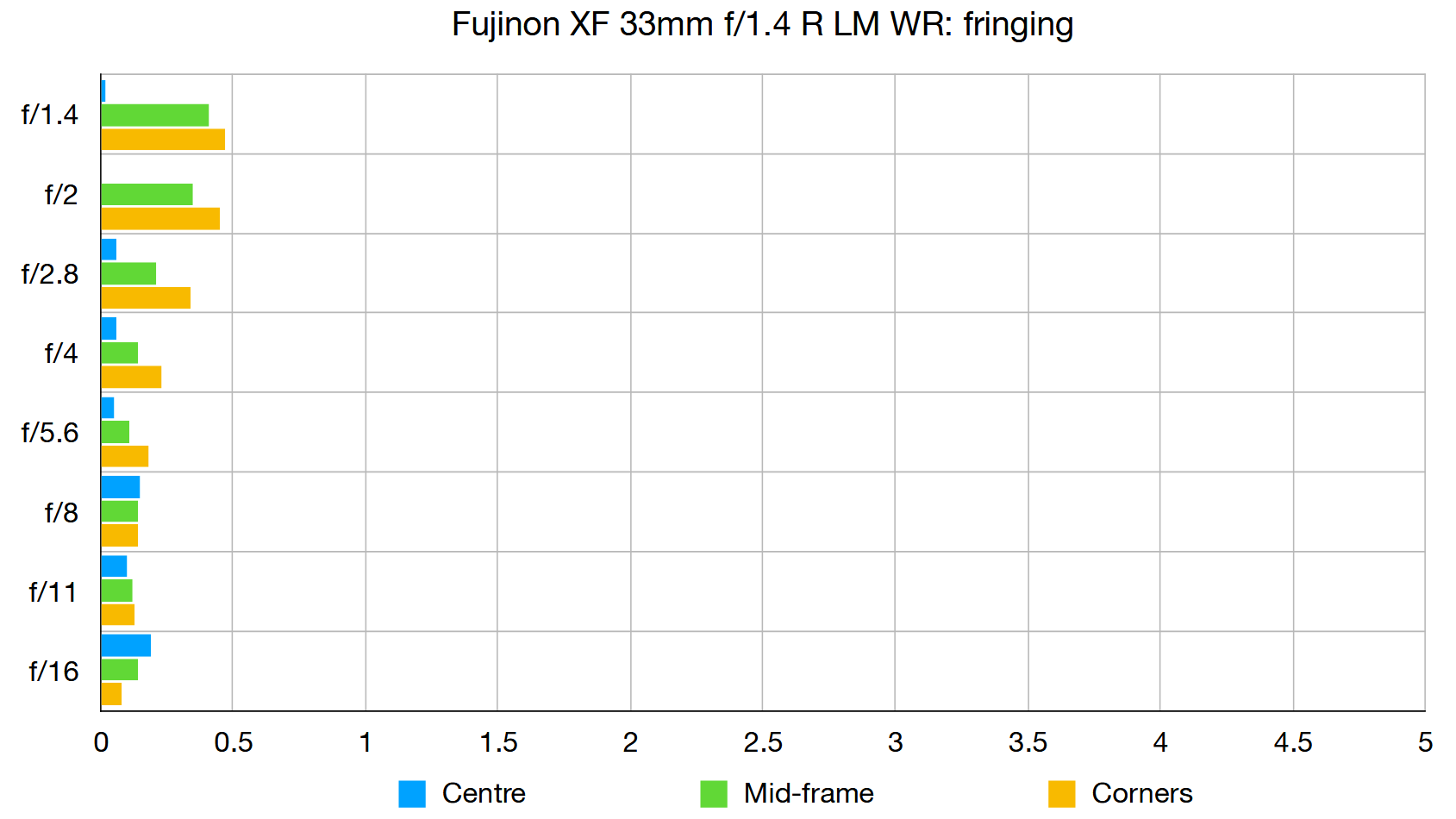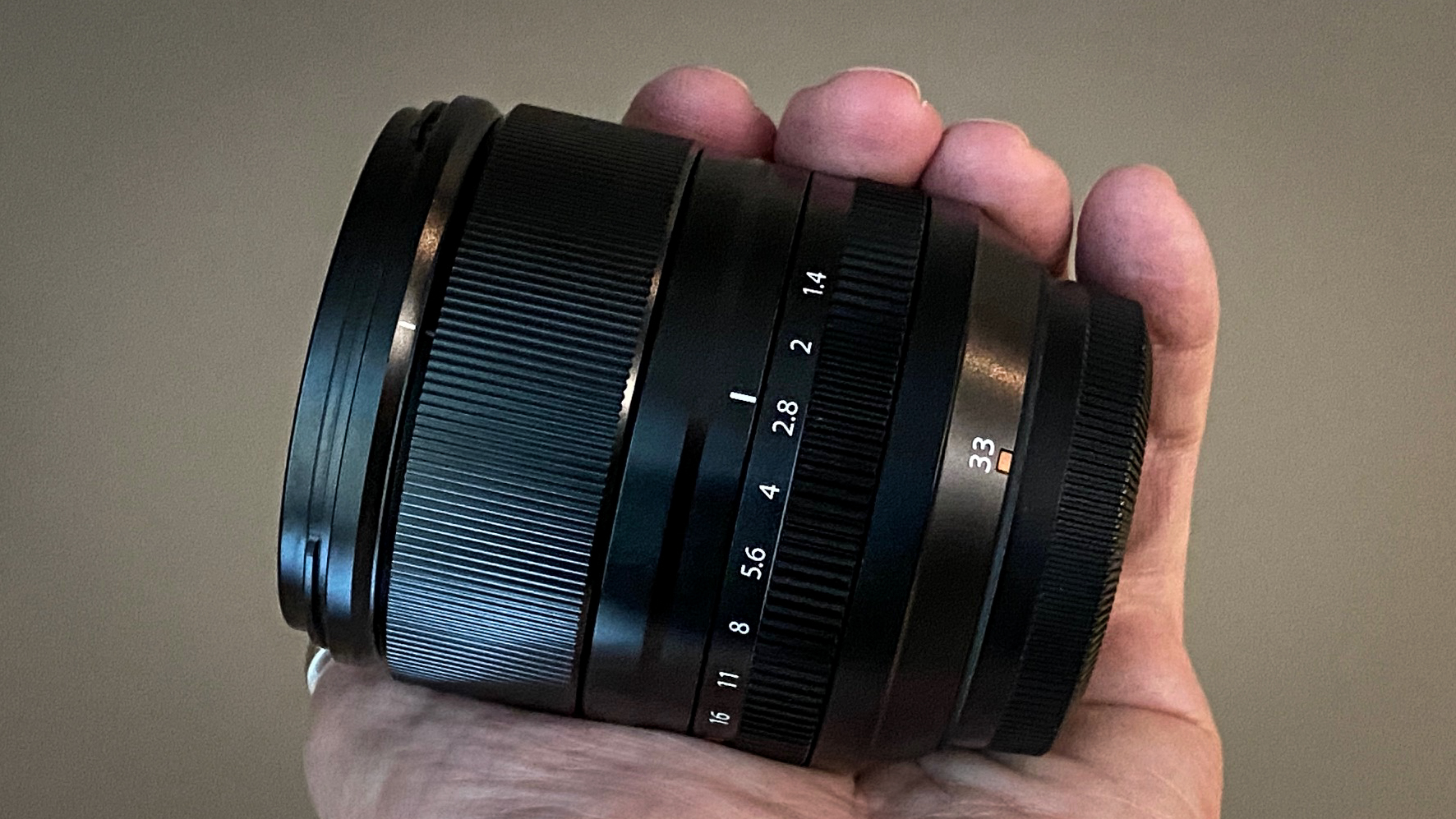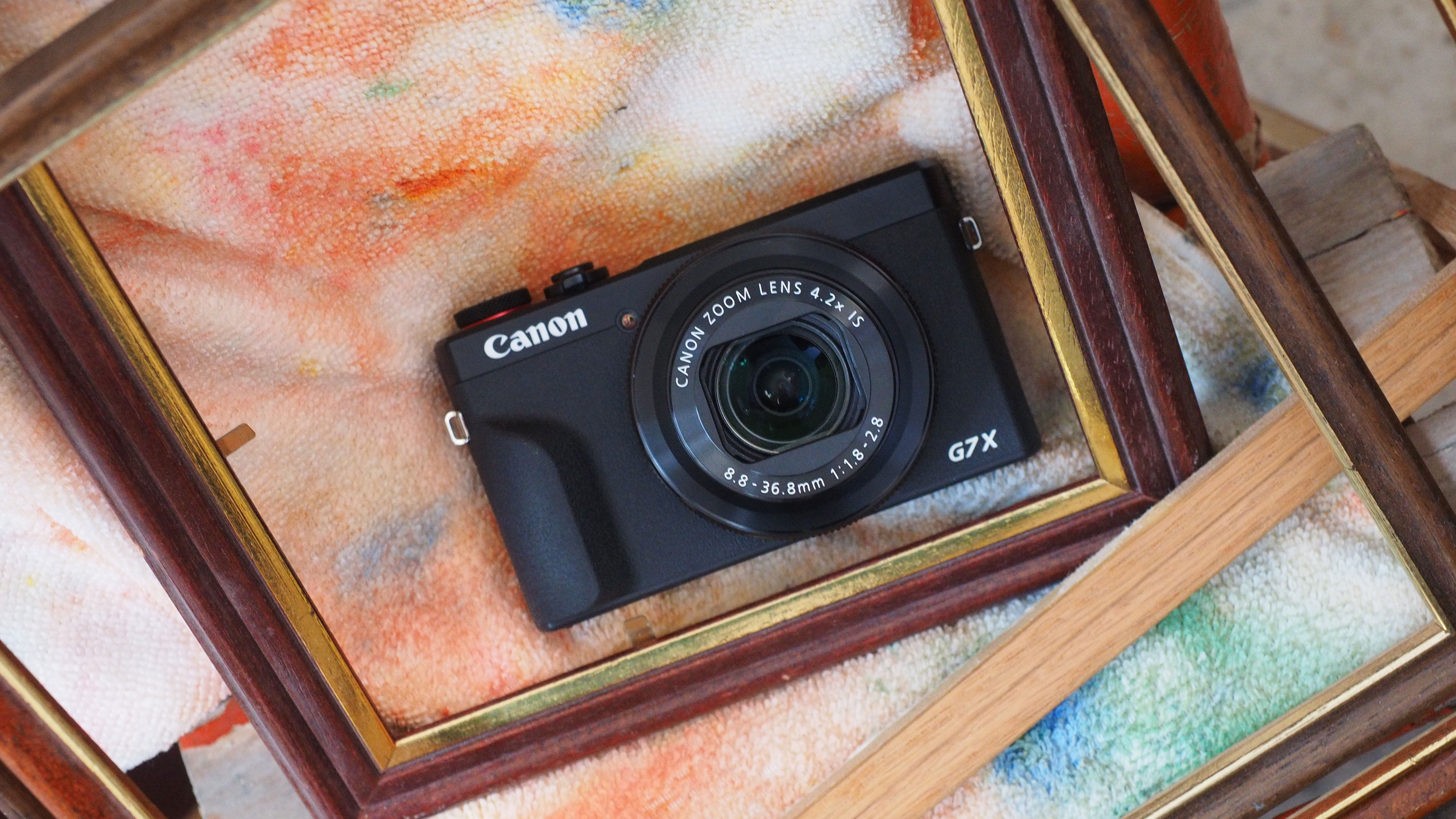Digital Camera World Verdict
For an APS-C 50mm equivalent lens, this one is comparatively large – but that's a small price to pay for fast linear motor autofocus, an f/1.4 maximum aperture and superb optical performance. The Fujinon XF33mmF1.4 R LM WR also has a physical aperture ring, working perfectly with the external shutter speed dials on cameras like the X-T30 II, X-Pro3 and X-T4 to provide classic external exposure controls for more advanced photographers and those who just like to shoot the old way!
Pros
- +
50mm equivalent angle of view
- +
Fast f/1.4 maximum aperture
- +
Physical aperture ring
- +
Powerful linear AF motor
Cons
- -
Not exactly small
Why you can trust Digital Camera World
The new Fujinon XF33mmF1.4 R LM WR expands Fujinon’s sub-range of fast f/1.4 primes, which range from a 16mm f/1.4, the widest, through to a 35mm f/1.4, the longest. And this new optic will sit alongside the 35mm lens, rather than replacing it, though most will see it as a much more modern replacement.
Fujifilm's X-mount cameras have APS-C sensors, so the XF33mmF1.4 is actually a 'nifty fifty' with an effective focal length of 50mm. It's not the only Fujinon prime lens in this focal length. There's also the fractionally longer Fujifilm XF 35mm f2 R WR, and the stripped-down low-cost Fujifilm XC 35mm f2. Both lenses are considerably smaller and cheaper than this one, but are of course a whole f-stop slower.
Specifications
Construction: 15 elements in 5 groups, including 2 aspherical and 3 ED elements
Focal length: 33mm (50 mm equivalent)
Full frame: No
Image stabilization: No
Autofocus: Yes
Max. aperture: F1.4
Aperture ring: Yes
Aperture blades: 9 (rounded diaphragm opening)
Minimum Object Distance: 0.3m
Max. magnification: 0.15x
Dimensions:
Weight: 360g
Filter size: 58mm
Key features
At only 2mm longer in focal length than the existing XF35mmF1.4, the new lens offers something slightly different in this sub-range of the Fujinon lens portfolio.
An extra couple of millimetres may not sound like that big a deal, but fine margins do count, and this slightly-wider lens is equivalent to 50mm in full-frame terms – the field of view close to that of the human eye and which leads to optics like this being labelled ‘standard-view’ lenses.
Aside from the modest difference in focal length, there are several key differences between the XF33mmF1.4 and XF35mmF1.4.
A newer product, the XF33mmF1.4 boasts linear motor (LM) autofocus, whereas the XF35mmF1.4 calls on a stepper motor; linear motors offer faster and quieter autofocus.
The best camera deals, reviews, product advice, and unmissable photography news, direct to your inbox!
And where the optical construction of the XF35mmF1.4 comprises eight elements in six groups, the XF33mmF1.4 has a more sophisticated optical path: 15 lens elements in 10 groups.
Fujifilm says this is to effectively minimize chromatic aberration and spherical aberration, and deliver edge-to-edge sharpness even when shooting wide open at f/1.4.
And with nine aperture blades deployed in the XF33mmF1.4, compared to seven in the XF35mmF1.4, the newer lens promises creamy bokeh that’s delivered in a nearly-round shape.
Build and handling
Fujifilm does make some very compact f/2 prime lenses, but this f/1.4 alternative is considerably bigger – as always when choosing lenses, users will have to make a choice between size and maximum aperture. The XF33mmF1.4 does have a noticeable and slightly disconcerting internal 'clonk' when not mounted on a camera, but this disappears when the lens is mounted and the camera fired up, so we presume this is simply the internal AF group.
The overall handling and build quality is first rate, and the aperture ring is such a great thing to have for photographers used to film cameras – or who just like external controls. Seeing the markings go all the way from f/1.4 to f/16 – that's eight different aperture settings – is a reminder of just how much exposure freedom you get with a prime lens and how much you give up with a zoom.
There's no focus distance scale, though, so no depth of field markers for street photographers who like zone focusing, or landscape photographers who like hyperfocal focusing. You can display these in the camera's EVF or on the rear screen, though.
Performance
Color rendition is one of the Fujifilm brand’s unique selling points, and the lens did a good job of capturing colors faithfully in our tests, which were carried out during a photo walk in London and later with an urban and indoor shooting session.
From the vibrant hues displayed in a street arch in Chinatown to the lurid signage of shops and advertising artwork, colors rendered with punch and vibrancy and the lens produced plenty of contrast.
But when more muted colors were in evidence, for example in a sun-faded poster on the wall outside a shop, the color rendition in the resulting images was faithful to what our eyes saw.
The AF is fast and quiet, and the out of focus background blur (bokeh) is very attractive. It's true that full frame cameras can produce shallower focus than APS-C cameras (due to using longer focal lengths for the same angle of view), but the XF33mmF1.4 shows you can still get really tight depth of field with APS-C cameras too. The key is a lens which still delivers high contrast and sharpness when used wide open, and the Fujinon XF33mmF1.4 certainly does that.
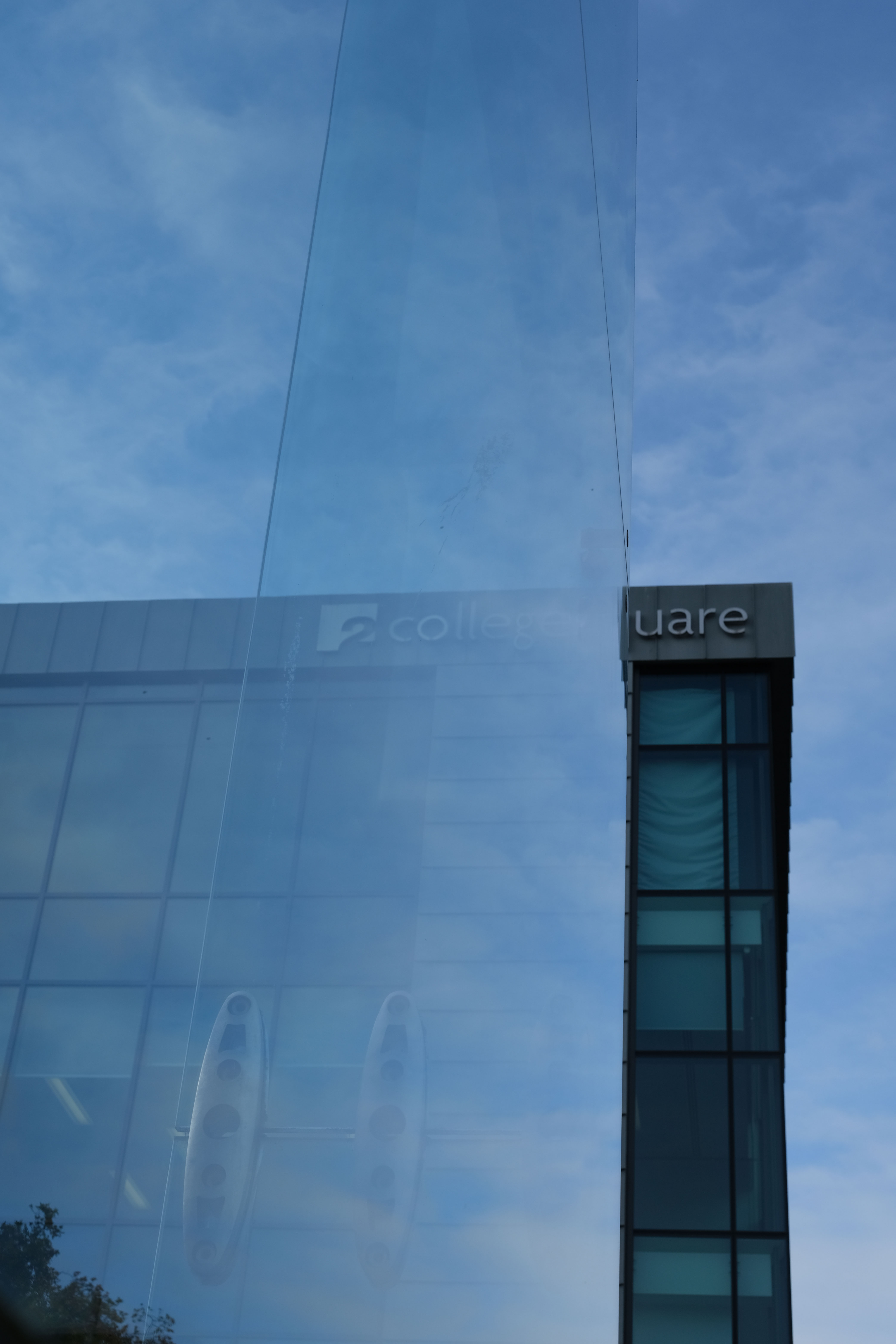
Prime lenses need minimum handling, of course, as there’s no zoom ring to twist; but for shooters who prefer to set apertures the old-fashioned way, they’ll enjoy the reassuringly satisfying tactile experience of the XF33mmF1.4’s aperture ring.
The same goes for focusing; Fujifilm has improved the control resolution of the focus ring for extra precision, which will be useful when focusing manually at shallow depths of field.
Lab results
We run a range of lab tests under controlled conditions, using the Imatest Master testing suite. Photos of test charts are taken across the range of apertures and zooms (where available), then analyzed for sharpness, distortion and chromatic aberrations.
We use Imatest SFR (spatial frequency response) charts and analysis software to plot lens resolution at the center of the image frame, corners and mid-point distances, across the range of aperture settings and, with zoom lenses, at four different focal lengths. The tests also measure distortion and color fringing (chromatic aberration).
Sharpness:
Centre sharpness is outstanding, even wide open at f/1.4, and stays excellent right through to f/11. Inevitably mid-frame and corner and sharpness aren't quite so impressive, but sharpness is still consistently high, regardless of aperture.
Fringing:
Lateral chromatic aberration is as close to non-existent as you could hope for from a camera lens. Few optics can undercut fringing scores this low.
Distortion: 1.42
The XF 33mm produces slight pincushion distortion if you deliberately disable in-camera distortion correction, but you're unlikely to notice this unless you're shooting especially geometric subjects.
Verdict
People buy fast prime lenses for their maximum aperture and optical performance, not for compactness, so while the XF33mmF1.4 is a good deal larger than Fujifilm's equivalent f/2 lenses, we can't really mark it down for that – it goes with the territory.
The design is understated, the finish is excellent and the controls work perfectly. There's nothing flashy about this lens's design, and instead it's the optical performance that counts.
And here, the XF33mmF1.4 really delivers, with excellent central sharpness even wide open, and good edge sharpness to go with it. To all intents and purposes, distortion and color fringing don't exist.
Not everyone needs a fast 50mm equivalent prime lens – it all depends on your shooting style and your own photographic eye – but if you do, and you're wondering if this one is any good, well, it's hard to see how it could be any better!
Read more:
• X Summit Prime 2021 report
• Fujifilm X-T30 II review
• Best Fujifilm lenses
• Best Fujifilm cameras
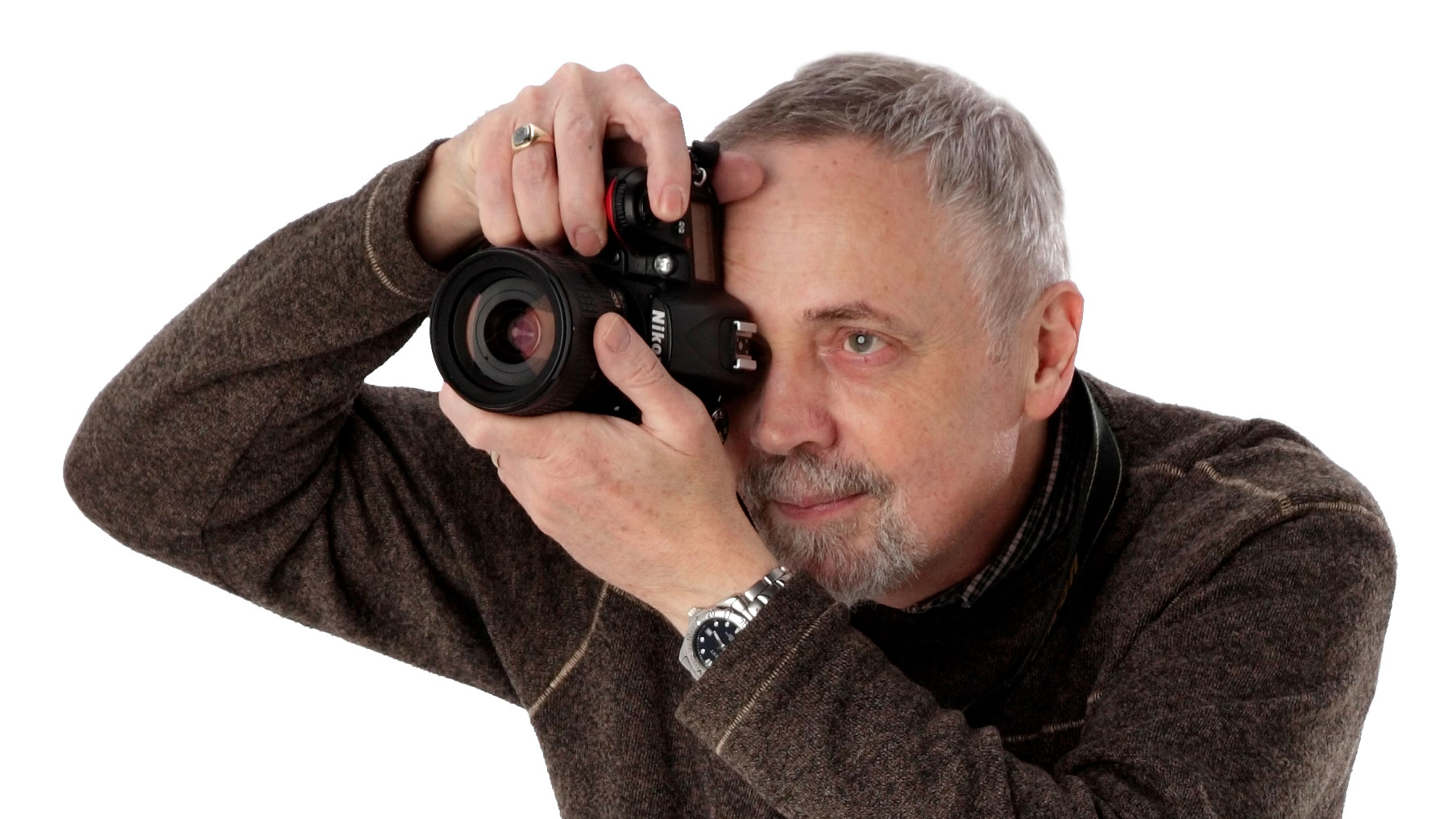
Rod is an independent photography journalist and editor, and a long-standing Digital Camera World contributor, having previously worked as DCW's Group Reviews editor. Before that he has been technique editor on N-Photo, Head of Testing for the photography division and Camera Channel editor on TechRadar, as well as contributing to many other publications. He has been writing about photography technique, photo editing and digital cameras since they first appeared, and before that began his career writing about film photography. He has used and reviewed practically every interchangeable lens camera launched in the past 20 years, from entry-level DSLRs to medium format cameras, together with lenses, tripods, gimbals, light meters, camera bags and more. Rod has his own camera gear blog at fotovolo.com but also writes about photo-editing applications and techniques at lifeafterphotoshop.com
